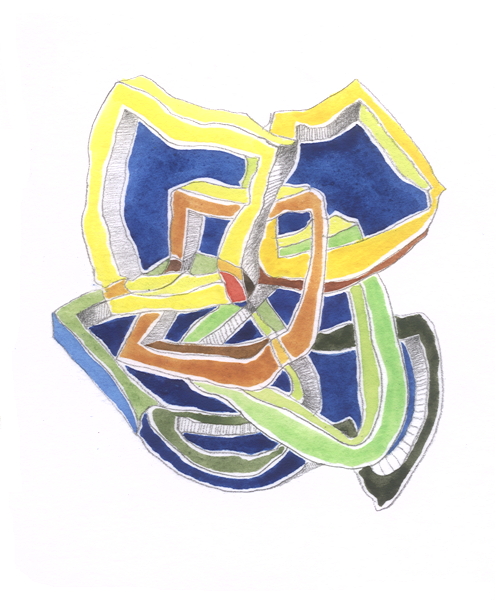
|
|
| 1.12.2012 |
The sections of PKD's notes that deal with 'the end' are concerned with a paradox: the 'greatest good' cannot restore itself without inflicting intolerable suffering on what it has created. [God can't be whole again without destroying creation] These notes have the tension of a crisis reminiscent of the tension and paranoia in most of PKD's novels. He must have lived with this twisted uncertainty, always trying to find the right way back to unity, always looking for one more bit of hope. In regards to the 'greatest good' finding reunification without total destruction, he points to a solution:
The way I read his argument, each ontogon that awakens, repairs the universe a tiny bit, but not until all ontogons awaken to their true nature is the universe fully whole again. This is a concept found in descriptions of the Bodhisattva, a being who can reach nirvana but instead returns to help others to the same goal; not wanting to be liberated until all beings are. So PKD's hope for reunification without total destruction is an awakened creation that lives in harmony with the whole. Now that's an idea whose time has come! |
| Previous Drawing | Home | Next Drawing |